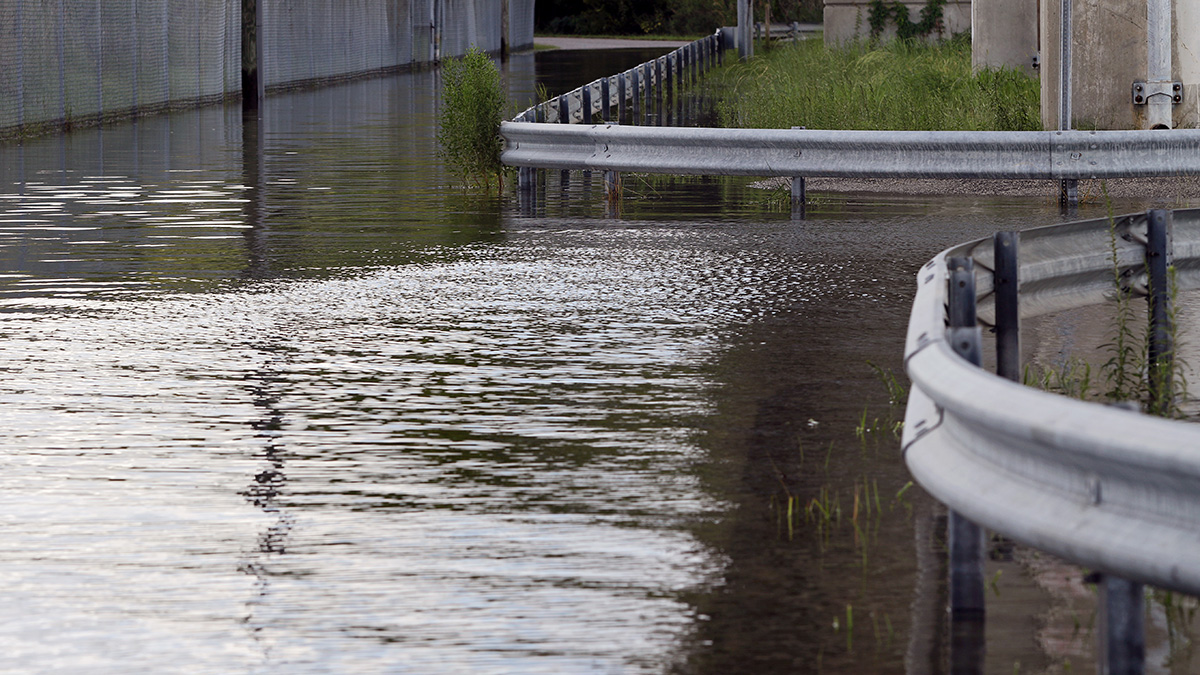
Come Election Day, Virginia Beach voters will control the fate of the city’s long-term response to flooding and sea level rise.
In addition to local and statewide races, Virginia Beach ballots on Nov. 2 will include a referendum question asking residents for permission to borrow $567 million to fund more than 20 flood reduction projects.
The city needs voters’ approval because its charter usually prevents it from taking on that much debt. Virginia Beach would pay off the loans by increasing real estate taxes between 4.3 and 6.4 cents per $100 of a home’s assessed value — equal to about $10 to $14 a month for an average priced home.
The stakes are high.
Rainfall is intensifying around Virginia due to climate change, and coastal areas are experiencing the fastest rate of sea level rise on the Eastern Seaboard. That’s only expected to accelerate with Hampton Roads projected to see at least 1.5 feet of higher waters by 2050 and potentially 3 feet by 2085.
A Virginia Beach study concluded the city must spend $2 to $5 billion on projects to respond to flooding and climate change. If no action is taken, 3 feet of higher waters could cost the city $300 million annually.
“To put the city on a more sustainable path to resiliency, and to protect our investments in homes and businesses, we need bold moves,” Mayor Bobby Dyer wrote in a recent Virginian Pilot op-ed. “Quite simply, we need to fix flooding faster.”
What happens if voters approve the referendum?
If a majority of voters approve the referendum, the city will launch 21 projects in six vulnerable areas that would be completed over the next decade.
They include pump stations and flood barriers around Windsor Woods and London Bridge Creek; stormwater drainage improvements near Seatack; elevating Lynnhaven Drive; restoring natural flood barriers like wetlands around Back Bay; and converting Bow Creek golf course into a recreational space with stormowater drainage ponds.
The costs of the projects range from $940,000 to improve stormwater drainage on Eastern Shore Drive to about $93 million for drain upgrades around the central resort district in the Oceanfront.
Timing is a major reason why the city wants to fund the resilience work with bonds.
Officials say it would take Virginia Beach 40 years to complete the projects with current funding resources — too long given the accelerating rate of sea level rise and more intense rainfall.
“While the city had invested in stormwater infrastructure for years, we know that those systems are not sufficient,” L.J. Hansen, Virginia Beach’s public works director, said during a recent public forum on the referendum.
The proposed real estate tax hike to pay off the bonds highlights the sense of urgency among City Council members, who unanimously voted to reduce the same tax rate last year. The new increase would bring the rate to at most $1.05 per $100 of a home’s assessed value, equal to that of Chesapeake.
If the referendum passes, City Council would adopt a financial plan to pay off the loans and guarantee that any extra money from the increased taxes will only go to stormwater improvements.
Council would also create a citizen oversight board that will receive regular updates about the construction status of projects.
An independent analysis of the referendum by Old Dominion University concluded the plans will benefit Virginia Beach.
For every additional dollar of investment in public infrastructure, future financial damages from flooding would decline by between $13 and $15, according to the report.
The benefits also extend beyond less flooding — the analysis estimates construction could produce 3,300 jobs and boost the local economy by $371.5 million.
And if the referendum fails?
Virginia Beach residents would avoid the planned tax increases.
However, the referendum’s failure would hamstring the city’s resilience efforts and could leave families more susceptible to future flooding.
Council likely would have to consider alternative funding sources for flood-reduction work, like an increase to stormwater management fees, which are about 49.3 cents a day and net the city about $40 million annually.
However, officials have said slight increases to stormwater fees won’t be enough to cover the planned projects that are part of the referendum.
Virginia Beach also might pursue more state and federal money. But that could prove difficult — the ODU analysis said recurrent flooding is unlikely to qualify for federal disaster assistance.
“We can reasonably expect that, over time, a greater proportion of costs will be borne by residents and businesses, further depressing economic activity,” the report said.





